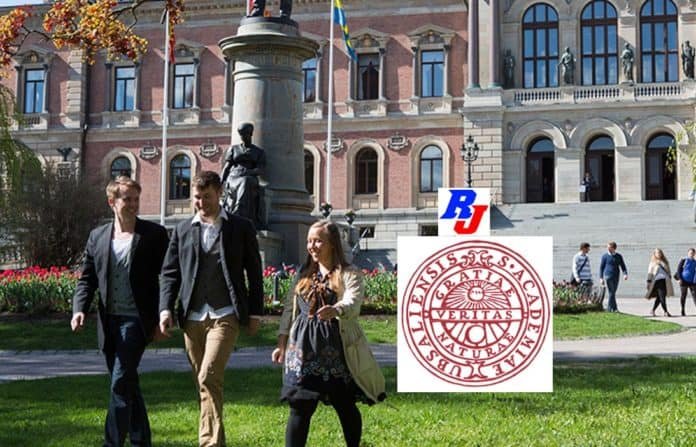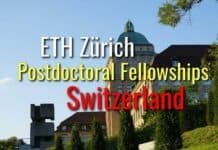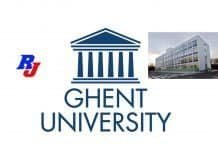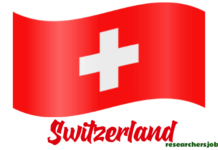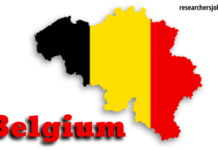Designation/Position – multidisciplinary postdoctoral fellowships
Integrated Science Lab (IceLab) invites applications for multidisciplinary postdoctoral fellowships from eligible and interested candidates.
About- The Integrated Science Lab (IceLab) jointly with several departments at Umeå University and SLU offer three postdoctoral scholarships that will be affiliated with one of six possible multidisciplinary projects.
The ideal postdocs will have expertise in mathematics, machine learning, computational modeling, systems biology, molecular biology or an interest in obtaining experience in these areas. Further, postdocs should have a deep interest in scientific collaboration between researchers using theoretical and empirical approaches.
Research/Job Area-
Light variability as a driver of organismal resilience to environmental change
Photosynthesis supports almost all of ocean life, so the underwater light environment is tremendously important. This project will investigate light harvesting in red algae from both a theoretical and experimental perspective, using multiphysics modelling and single-cell spectroscopy. We can use this to predict light capture from small cells to large ecosystems. This will help us better understand how the environment can adapt and we can use this information to protect marine life and the ocean.Click to Read Full Description
Deciphering infection-related epigenetic dynamics to explain the variability of human susceptibility to infections with respiratory pathogens
We have found that Tuberculosis (TB) and COVID-19, two major pandemics of our time with highly variable infection susceptibility, leave epigenetic marks on our genome. However, the origin, dynamics, impact on severity, and potential for long-term effects such as long-COVID-19 syndrome remain unknown. The postdoc will work with a team to analyze clinical data and predict patient outcomes using biobanks, machine learning tools, and network models.
Click to Read Full Description
Modelling ecological sustainability and economic viability of multi-trophic farming for Nordic latitudes
The project aims at developing a mathematical model of a multi-trophic, circular indoor farming system to explore its dynamical behaviour under different environmental and economic scenarios. We will optimize the input, output and flow scaling and steering in the network to understand the feasibility, robustness and economic viability of the food production system.The project requires skills in mathematical modelling and programming, and a basic understanding of biological processes in an ecosystem. Click to Read Full Description
Dissection of the cell shape acquisition mechanisms in plants
We hypothesize that the epidermis morphogenesis in plants is regulated by mechanical and/or chemical signals emerging from the cuticle layer. We aim to unravel crucial aspects of cell shape and cell fate determination by investigating the roles of mechanical and chemical signals derived from the cuticle, in pavement cell distribution and coordination in Arabidopsis leaf epidermis. Click to Read Full Description
Resolving microbial genomes in complex communities at the single-cell level
A fundamental challenge in microbiome research involves determining which organisms are part of a given microbial community. In this project, we will develop a high-throughput method, which can reconstruct whole microbial genomes from microbiome samples at the single-cell level. Click to Read Full Description
Outer membrane tethering in Gram-negative bacteria
The cell envelope of bacteria provides structural support and protects the cell from environmental stress. Gram-negative bacteria are known to covalently link their outer membrane to the peptidoglycan cell wall. Yet, the proteins involved in this tethering are largely uncharacterized. The project will study how Gram-negative bacteria link their outer membrane and peptidoglycan by analyzing a diverse group of species using high throughput proteomics.We are looking for a candidate that has a strong background in microbiology, molecular biology and/or biochemistry, and an interest in working in cell wall biology and proteomics.Click to Read Full Description
Location- Integrated Science Lab (IceLab) jointly with several departments at Umeå University and SLU
Eligibility/Qualification/Job/Position Description- –
To be a postdoctoral scholarship holder, you need to have a doctoral degree or a foreign equivalent.This qualification requirements must be fulfilled no later than at the time of the decision about scholarship recipient.
Preferential treatment should be given to individuals who obtained their doctoral degree no more than three years ago, as stated in the previous paragraph.If there are special reasons, candidates who completed their doctoral degree prior to that may also be eligible. Special reasons for absence include being sick, taking parental leave, holding a trade union position, serving in the military, or being involved in relevant clinical or other assignments related to the subject area.
Candidates should have experience in computational, machine learning, quantitative modeling, systems biology, molecular biology or an interest in learning those skills. Personal qualities such as collaboration, communication, strong drive and motivation, critical thinking abilities, creativity and analytical skills are essential. You should be able to take on the research independently and as part of a team. Good knowledge of oral and written English is required.
How to Apply-
A full application should include:
- A cover letter clearly stating which project or projects you are particularly interested in and summarizing your qualifications, your scientific interests, and your motives for applying (max 2 pages),
- A curriculum vitae (CV) with publication list,
- Certified copy of doctoral degree certificate,
- Certified copies of other diplomas, list of completed academic courses and grades,
- Copy of doctoral thesis,
- Copies of relevant publications,
- Contact information for at least two reference persons,
- Other documents that the applicant wishes to claim.
Send your application as a PDF to medel@diarie.umu.se with the reference number FS 2.1.6-1347-23 in both the file name and email subject.The application can be written in English or Swedish. Application deadline is 21 September 2023.
We look forward to receiving your application.
Last Date for Apply– 21 September 2023.
You can get our Regular updates on Telegram, also
Find or Post Research Project PositionS – Researchersjob Board
See Also: Motivation Letter for PhD, Postdoc, and Other Research Positions
Whitesmoke Grammar Checker Online – Improve Your Research Writing Skill – Alternative to Grammarly
How to write a literature review: Tips, Format, and Significance
Research Proposal How to Write: Detail Guide and Template

